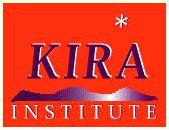

|
Comments for Life As A
Lab
|
I'm wondering if seeing ourselves in a particular role, and somebody else in an opposing role - is this also an instance where the subject/object reversal might be practically useful? For example, I was recently at a meeting with other grad students from the dept to encourage young girls to go into science. It was difficult to get them to interact with us openly. Nobody wanted to be the first to respond to a question. Later, when we talked about it, we thought that we might have tried reversing the situation. The kids saw us in some sense as the authority that they were accustomed in not talking with openly. Maybe a game might have fooled them into responding, so that the person out is the person who responds last, not the one who responds first.
At any rate, this is just a simple example. In general, the subject-object reversal experiment allows us to see more degrees of freedom than we have previously perceived. And it might have practical consequences for conflict resolution.
-- SC- 11 Apr 2005
Thanks, SC, yes, I think that the subject/object reversal is a great starting point for all kinds of explorations. Conflict resolution is a very interesting case in point. I recently talked with someone who has been professionally trained in mediation (many people mistake this for meditation; he lives on the west coast ;>). His point was: in a conflict situation, the last thing you want to do as a mediator is to find a compromise. Proposing a compromise is easy, and something the players can come up with themselves. What you should do is finding a new angle, coming up with a new direction to look at the problem, from which both sides can have the feeling that they can gain in a new way. I found that very interesting; perhaps meditation does help mediation!
-- Piet Hut - 12 Apr 2005